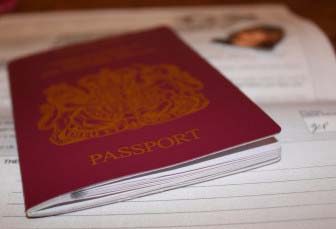
Long-awaited changes to Qatar’s kafala sponsorship system have been green-lighted by the Cabinet, bringing reforms one step closer to becoming enshrined in the law.
According to QNA, the Cabinet approved the draft law yesterday during its regular weekly meeting, which was chaired by the Prime Minister Sheikh Abdullah bin Nasser bin Khalifa Al-Thani.
However, the new rules still require final approval from the Emir and are unlikely to come into force until late 2016 at the earliest.
Once they take effect, the reforms are expected to make it easier for expats to leave the country and change jobs.
Waiting for change
Though proposed changes to the kafala law were announced over a year ago, it has taken several months for the reforms to be approved by various government bodies.
Additionally, progress has been slow as groups such as the Chamber of Commerce, which represents private sector business, have reportedly voiced reservations about bringing in sweeping changes.

Over the summer, a government spokesman said the draft law was expected to be finalized by the end of this year.
However, the chairman of Qatar’s Ministry of Labor and Social Affairs (MOLSA) has previously warned that the new law would not to be enforced immediately, and that employers would have up to a year after the legislation was passed to comply with the new rules.
This “grace period,” enshrined within Article 50 of the new draft law, would also give relevant administrative and executive agencies time to set up mechanisms to deal with the new rules, the Peninsula quotes local lawyer Yusuf Al Zaman as saying.
The new law would update the existing Law No. 4 of 2009 Regarding Regulation of the Expatriates’ Entry, Departure, Residence and Sponsorship.
Full details of the draft that the Cabinet approved yesterday have not yet been revealed.
Criticism
Qatar’s kafala system has attracted considerable criticism from foreign media and human rights’ organizations in recent years for leaving expats vulnerable to exploitation at the hands of unscrupulous employers.

When the promise of reform was introduced in May 2014, officials declared that they were abolishing the idea of kafala sponsorship and instead replacing the system with a contract between employer and employee.
However, some human rights advocates argue that authorities are only changing the terminology and not the actual restrictions on workers.
Speaking to Doha News about the proposed reforms last year, Nick McGeehan, a researcher with Human Rights Watch, said:
“I don’t want to be too critical today … If today is the absolute and final response, it falls so short that it can’t possibly be. There must be more.”
Among the issues under scrutiny is the exit permit. Under the current system, every employee requires official permission from his sponsor before he can leave the country. This has been criticized as a breach of an individual’s basic freedom of movement.
Article 7 of the initial draft law changed the process by putting the onus on the government rather than the employer, and stated that an expat could automatically obtain an exit permit through the Ministry of Interior if he contacts them three days before leaving the country.

However, this is one of a number of changes that the Advisory Council expressed reservations about.
Though the council signed off on the draft law in July, members proposed several amendments to the legislation over the summer.
With regards to the exit permit changes, the council suggested that the worker first ask his employer for leave.
If he is denied an exit permit, he could then approach a grievance committee set up by the MOI. This committee could issue exit permits in case of emergencies.
However, the council is only an advisory body that can discuss and propose amendments to draft legislation that it submits to the Cabinet.
After consultation with government ministers, the Cabinet makes the final decision on the provisions of the law, which then goes to the Emir for approval.
Thoughts?







